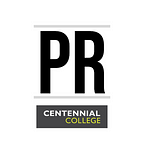Road to Recovery: How the Public Relations Industry can Offer Support Post-pandemic
By Albina Sufaj, Class of 2022
Last September, I entered Centennial College’s public relations and corporate communications program. Amid lockdowns and wavering COVID-19 mandates and regulations, I became used to Zoom college from my final two years at U of T. Storytelling has always been an important aspect to me and it is the very reason I decided to enroll and pursue an education in public relations. During the pandemic, we witnessed the turmoil brought upon businesses by lack of social conventions.
The very things I loved about Toronto, its diverse food scene and jumping night crawls, seemed to be fading away. Many businesses suffered financially, and we saw many doors close with no chance of re-opening. It is not just the trendy restaurants and bars we saw end, but many organizations and even charities fell victim to the pandemic. Not just here, but around the world.
PR continues to play an integral role throughout the pandemic, offering trust and credibility between the public and the ongoing mass of health communications.
As the world enters a sort of recovery mode from COVID-19, it begs the question, what can PR do now? Essentially, PR can offer the support and guidance for a brand to re-enter the world post-pandemic.
Recovery communications include practices to help organizations recover from crisis scenarios, however, the pandemic unveiled an unprecedented crisis in our contemporary time. Since March of 2020, we are living in times of uncertainty. Take the public vs. the media for example — piles of unreliable pieces of news circulating online for months and continues to even as the world scales back on major COVID measurements.
As PR professionals, it is a part of our moral and ethics as communicators to filter through false headlines and news. Practitioners work closely with the media daily; our work is meant to structure public opinion.
A common misconception about PR is that communicators are there solely to clean up messes. Over the past decade, the industry has drastically evolved with attributions from the pandemic in recent times. A strong characteristic about PR is effective storytelling between brands and the public.
The pandemic introduced an opportunity for communicators to rethink their roles in the industry. Building trust and credibility has been more prevalent than ever in terms of providing relief for businesses and the public. PR can help address the anxieties that appeared within the past two years and work to repair the damages it introduced to the world.
In a post for Argyle PR, CEO Dan Tisch talks about the pandemic ‘fault line’ and how the pandemic opened a wider space for scrutiny from the public than we saw before. From there, it is no lie that the overall trust in government relations and other executive operations sunk. Tisch also discussed the important of leadership during fragile times. The pandemic emphasized the need for leadership in the world. It also taught communicators that they can also possess leadership qualities within their own roles, respectively.
One of my projects I worked on during my time as a PR student launching a campaign for our Storyworks client. I had the opportunity work with the Breast Cancer Support Fund (BCSF) and its founder, Donna Sheehan. The fund provides breast cancer patients financial and emotional aid through their diagnosis and recovery. A challenge that the fund faced during the pandemic was the lack of support from the Canadian government, more specifically, Ford’s Ontario government. BCSF relies on donors to graciously fund the many needs of patients across the nation.
As aspiring communicators, my team and I were able to build a campaign focusing on the financial burdens on patients and help shape the narrative that more than just the patient is affected by a diagnosis. By integrating the fund’s key messages into our social media campaign, we were able to tell their story.
We believe that governmental structures work for the people, we entrust in political officials to represent our best wishes as a society. Within two years, that narrative took a dramatic shift. Conversations sparked around the world about the lack of effective leadership and care for citizens during a health crisis.
Having that opportunity and talking with real-life patients taught me something about the field I aim to pursue. As communicators, we work for the public, not just the business. We have a responsibility to provide ethical and meaningful communications to the public. We are the middle ground.
So, what do we do?
We push the narrative. Drive key messages. Strengthen public relationships.
Last September, I entered Centennial College without a clear grasp on what the public relations industry can truly achieve. This September, I aim to be the communicator I envisioned myself as in the past year. A communicator who can effectively and meaningfully tell the stories that need to be told. Not only to serve clients, but the public.
